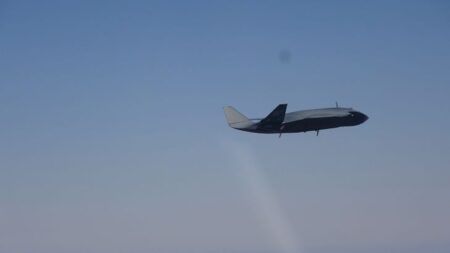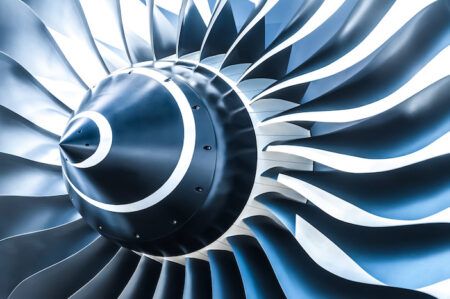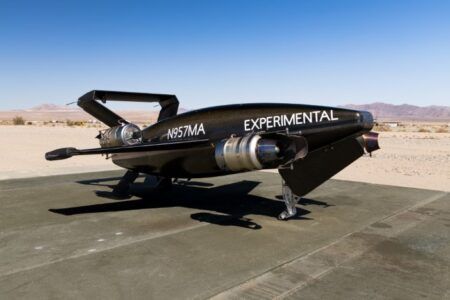The Vlinder drone provides a platform for awerial robots (Image: Neva Aerospace)
European consortium Neva Aerospace is to conduct the final development and testing of its electrically-powered turbines for UAVs at Angers Loire Airport in Northern France.
The consortium’s vertical take-off and landing (VTOL) turbofans, which are designed for use on electric and hybrid aircraft and UAVs, are being developed and tested at the site in Angers. Assembly of the turbines will also take place there.
The facility at Angers opened this month with five employees and expects to employ another 10 people “within years”, said the company.
Neva has created a subsidiary company, called European Sustainable Propulsion (ESP) SAS, to work with drone manufacturers to develop turnkey commercial and industrial UAVs. It will also research UAV battery power and recharging systems and work on satisfying safety and airspace regulation.
The electric turbines being developed by ESP are optimized for vertical and short take-off and landing, have no uncaged rotors and are lightweight. The turbines will be used by members of the Neva Aerospace consortium for the development of heavy air vehicles and will also be offered for sale to other UAV and aerial platform producers.
Target aviation applications include cargo lifting, humanitarian intervention, air ambulance, cargo transportation and police and military systems, for take-off weights ranging from 5kg to 2000kg.
Robert Vergnes, president of the Neva Consortium, said, “Our technologies are still unknown to the general public and many professionals in the sector. Nevertheless, a strategic battle is currently going on between the great powers, a battle for the efficiency of transport in general and in particular that of air transport.
“The mastery of the technology of electric turbines, which will eventually replace the thermal turbines used to propel helicopters, light aircraft and regional aircraft, is a key issue and strategic for the economic development of the European Union.
“At a time when many are turning to the flying cars of Uber Elevate and Airbus Vahana, we believe that the development effort should be primarily industrial and that it is important to produce electric turbines.
“The advantage of distributed electric turbine and propulsion technologies for aeronautics is their complete safety during a flight compared to propellers, their redundancies and the reduction by two to three times of the costs of purchase and operation for operators.
“This will undoubtedly change the aeronautical landscape in the medium term and benefit the environment with less noise and pollution than current engines.”
UK-based Neva Aerospace, which was launched in 2009, is a European consortium made up of six companies and organizations and more than 100 people.
Members of the consortium include Germany’s Schübeler Composite, Lithuania’s Space Science and Technology Institute, Geola Technologies UK and Geola Imaging UAB, French consultancy Aciel and French R&D and assembly company ESP.
March 12, 2018




